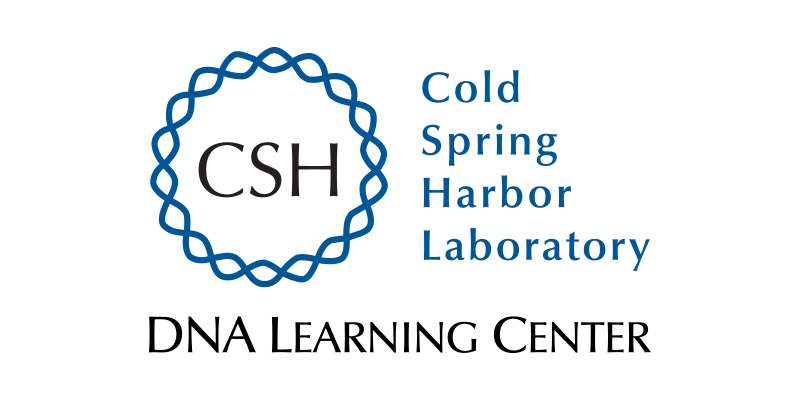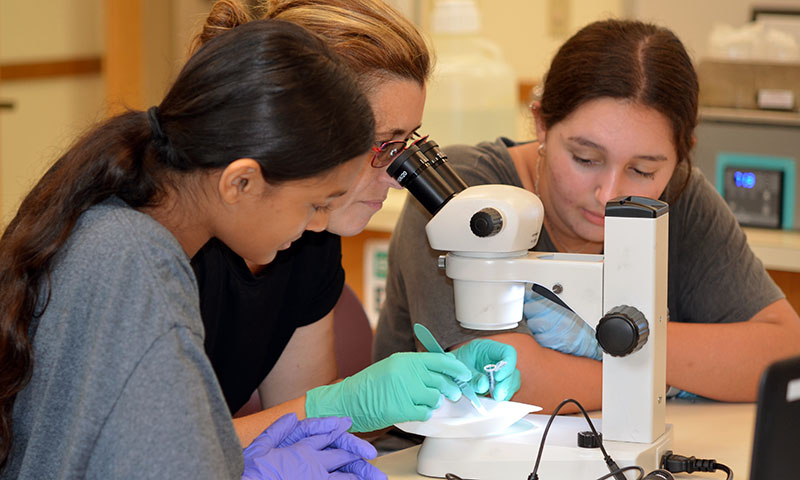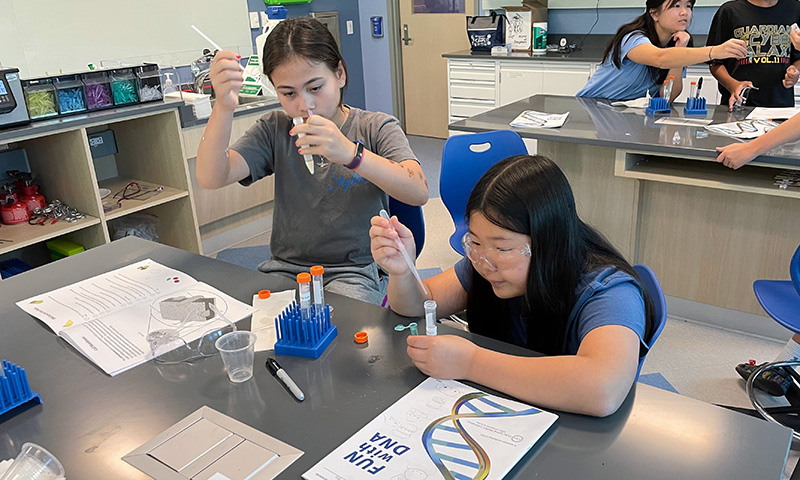
Explorations of Biological Sciences and DNA – NSF AC3 2024

Designed and approved by the DNA Learning Center (DNALC) of Cold Spring Harbor Laboratory (CSHL), the world’s first science center devoted entirely to public genetics education and the largest provider of biotechnology instruction at the precollege level in the United States. We want all the students in our country, from public and private schools, to have the opportunity to raise their level and quality of academic training.
DNA Barcoding
Session: June 10–14, 2024
Experience the process of science in this one-week project-based exploration. A short "DNA barcode" (about 700 nucleotides in length) is a unique pattern of DNA sequence that can potentially identify any living thing. DNA barcoding projects allow students to link molecular genetics and ecology while learning about biodiversity, conservation biology, and human effects on the environment.
Students will:
- extract and amplify DNA from plant and invertebrate samples;
- use web-based bioinformatic tools to analyze DNA sequences and identify species of origin;
- create phylogenetic trees to display genetic and evolutionary relationships;
- use building blocks to model how polymerase chain reaction (PCR) is used to amplify DNA barcodes; and
- complete an open-ended project to investigate biodiversity.
Details:
- Students entering grades 9–12
- Monday to Friday 9:30 a.m.–4:00 p.m.
- Cost: Free
- Lunch included. Food services are free provided by the Department of Education to children ages 1 to 18
- This institution offers equal opportunities
For more information email at: visit@areciboc3.org
Fun with DNA
Session: June 17–21, 2024
Fun with DNA is an entry-level course in DNA science. This one-week exploration is designed especially for highly motivated students interested in expanding their knowledge of basic genetics and cell biology.
Participants will:
- construct cell and DNA models;
- use compound microscopes to view various cell types;
- extract DNA from their own cells and from plants;
- use stereo microscopes to observe mutations in fruit flies; and
- genetically engineer bacteria cells with firefly genes.
Details:
- Students entering grades 5–8
- Monday to Friday 9:30 a.m. – 2:30 p.m; friday–parent day, in person visit from 1:00 – 2:30 p.m. and/or in virtual format.
- Cost: Free
- Lunch included. Food services are free provided by the Department of Education to children ages 1 to 18
- This institution offers equal opportunities
For more information email at: visit@areciboc3.org
This material is based upon work supported by the U.S. National Science Foundation (NSF Awards ID 2321759, 2321760, and 2321761.) Any opinions, findings, and conclusions or recommendations expressed in this material are those of the author(s) and do not necessarily reflect the views of the U.S. National Science Foundation.

